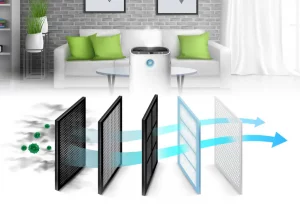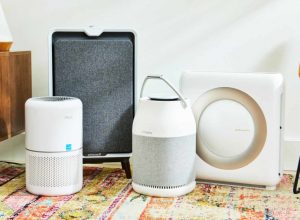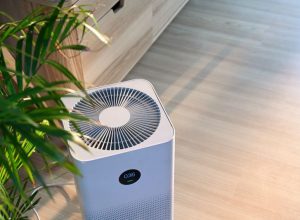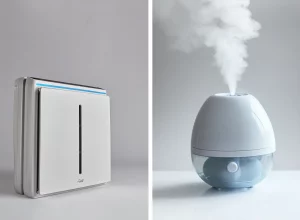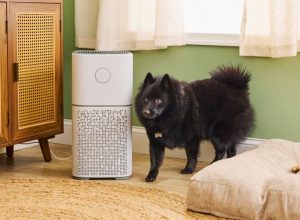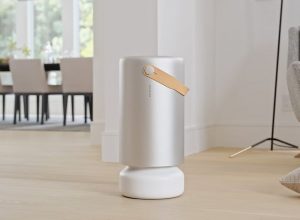Contents
Do You Really Need an Air Purifier? Benefits for Home and Office
In an era where air quality has become a significant concern, the question arises: do you really need an air purifier for your home or office? Air purifiers have gained popularity due to their potential health benefits and improvements in overall indoor air quality. This article delves into the various aspects of air purifiers, including their function, types, and benefits, ultimately helping you make an informed decision.
Understanding Air Purifiers
An air purifier is a device that removes contaminants from the air in a room. These devices are particularly beneficial for removing particles and pollutants that can be detrimental to health. Contaminants may consist of allergens, dust, pet dander, mold spores, and volatile organic compounds (VOCs) emitted from various household products.
Working Principle of Air Purifiers
Most air purifiers operate through a combination of mechanical filtration and advanced technology:
Mechanical Filtration
HEPA (High-Efficiency Particulate Air) filters are the gold standard in air purification. They can capture at least 99.97% of particles that are 0.3 microns in size. This includes allergens and pollutants. Think of HEPA filters like a fine sieve that only lets air pass through while trapping harmful particles.
Activated Carbon Filters
These filters are designed to adsorb gaseous pollutants such as odors and certain VOCs. The porous nature of activated carbon allows it to trap gas molecules, similar to a sponge soaking up water. This makes them ideal for kitchens or areas where strong odors may be present.
UV Light Technology
Some air purifiers incorporate UV light technology to kill bacteria and viruses. This method can be analogized to using sunlight as a natural disinfectant—while direct sunlight eliminates harmful microorganisms in outdoor environments, UV light within an air purifier does so indoors.
Benefits of Air Purifiers
Understanding the benefits of air purifiers can help gauge their necessity for your environment:
Allergen Reduction
For those with allergies, air purifiers can significantly reduce symptoms. Pollen, pet dander, and mold spores are common allergens that can be effectively filtered out, leading to clearer airways and improved comfort within indoor spaces.
Asthma Attack Prevention
Individuals with asthma are sensitive to air pollutants. By reducing particulate matter in the air, purifiers can help prevent asthma attacks, making daily breathing easier and safer.
Odor Removal
As mentioned, activated carbon filters can effectively remove odors from pets, cooking, smoke, and other sources. This is crucial in maintaining a pleasant atmosphere in both homes and offices, where lingering smells can be distracting or off-putting.
Reduction of Airborne Diseases
By using UV light technology, air purifiers can help reduce the transmission rate of airborne diseases, contributing to a healthier environment, particularly in densely populated offices where illness can spread quickly.
Considerations for Home and Office Usage
When deciding to invest in an air purifier, consider the following:
Room Size
Air purifiers are rated for specific room sizes. It’s vital to select a unit capable of filtering the volume of air in the intended space effectively. For instance, using an air purifier designed for a small bedroom in a large living room may result in inadequate filtration.
Maintenance Requirements
Regular maintenance is essential for optimal functioning. This includes timely replacement of filters and cleaning the device to ensure that it operates efficiently. Neglecting maintenance can lead to a decline in air quality rather than an improvement.
Noise Levels
Consider the noise level of the air purifier, especially for environments that require tranquility, such as bedrooms and offices. Many modern models are designed to operate quietly, allowing for minimal disruption.
Conclusion
In conclusion, whether you need an air purifier heavily depends on your personal health needs and environmental conditions. For individuals with allergies, asthma, or those living in polluted areas, air purifiers can offer significant benefits by improving air quality and contributing to a healthier indoor environment. In essence, investing in an air purifier can be a strategic choice for enhancing your overall quality of life at home or in the office.
Comparison of Air Purifier Types
| Type | Method of Operation | Benefits | Considerations |
|---|---|---|---|
| HEPA Filter | Mechanical Filtration | Captures allergens, dust, and pollutants | Requires filter replacements; may not eliminate odors |
| Activated Carbon | Adsorption | Reduces odors and VOCs | May require frequent replacements |
| UV Light | Disinfection | Reduces bacteria and viruses | Limited effectiveness against particulates; requires maintenance |
| Ionic Purifiers | Ionic Charge | Removes particles from the air using charged ions | May produce ozone; require cleaning |

